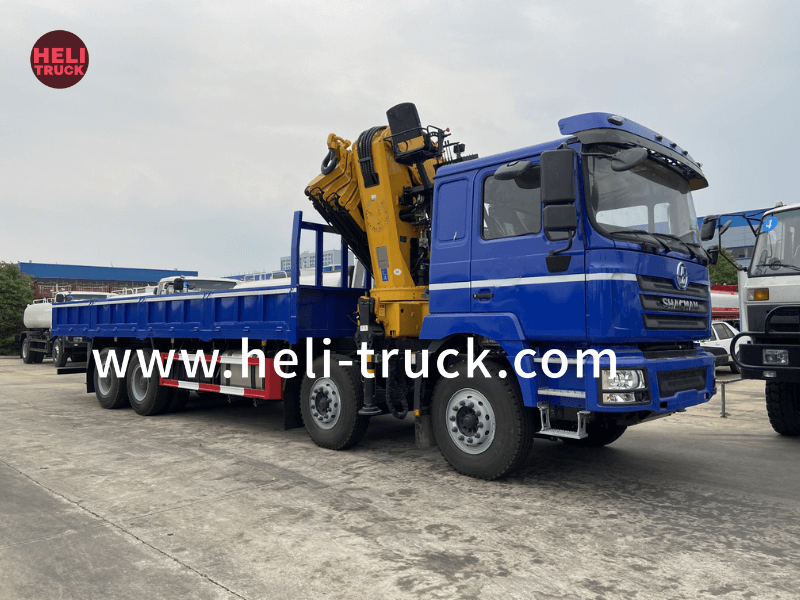Streamlining Waste Management Exploring the World of Garbage Compactor Trucks for Sale

Introduction:
In the realm of waste management, efficiency and effectiveness are paramount. Garbage compactor trucks play a crucial role in streamlining waste collection and disposal processes, ensuring cleaner and healthier environments for communities worldwide. These specialized vehicles are equipped with compacting mechanisms that compress garbage, maximizing the truck's capacity and reducing the frequency of trips to disposal sites. In this comprehensive guide, we delve into the world of garbage compactor trucks for sale, exploring their features, benefits, and the key considerations for purchasing these essential assets.
Chapter 1: Evolution of Garbage Compactor Trucks
The history of garbage compactor trucks can be traced back to the early 20th century when municipalities and sanitation departments sought more efficient ways to collect and manage waste. The first compactor trucks were rudimentary in design, with manual compacting mechanisms that required significant labor input. Over the years, advancements in engineering and technology have revolutionized these vehicles, leading to the development of modern garbage compactor trucks equipped with hydraulically operated compactors and automated systems for waste collection.
Chapter 2: Types of Garbage Compactor Trucks

Garbage compactor trucks come in various types and sizes, each designed to cater to specific waste management needs. The most common types of compactor trucks include rear loader compactors, front loader compactors, side loader compactors, and roll-off compactors. Rear loader compactors are ideal for residential areas and small businesses, while front loader compactors are commonly used for commercial and industrial waste collection. Side loader compactors are favored for narrow streets and alleyways, while roll-off compactors are suitable for construction sites and large-scale waste disposal projects.
Chapter 3: Key Features and Components
Garbage compactor trucks are equipped with a range of features and components that enhance their efficiency and performance. These include hydraulic compactors, compaction blades, waste storage compartments, lifting mechanisms, and safety sensors. Hydraulic compactors play a crucial role in compressing garbage, reducing its volume and maximizing the truck's capacity. Compaction blades help to further compact the waste, ensuring optimal utilization of space. Waste storage compartments are designed to securely contain the compacted waste, preventing spillage during transportation.
Chapter 4: Benefits of Garbage Compactor Trucks
The adoption of garbage compactor trucks offers a multitude of benefits for waste management operations. These vehicles help to improve operational efficiency by reducing the number of trips required for waste collection, thereby saving time and resources. The compacting mechanism of these trucks enables them to carry a larger volume of waste, resulting in fewer trips to disposal sites and reduced fuel consumption. Moreover, garbage compactor trucks contribute to cleaner and more hygienic environments by preventing the spread of odors and minimizing the risk of littering.
Chapter 5: Factors to Consider When Buying a Garbage Compactor Truck
When considering the purchase of a garbage compactor truck, several factors should be taken into account to ensure that the chosen vehicle meets the specific requirements of the waste management operation. These factors include the size and capacity of the truck, the type of waste to be collected, the frequency of waste collection, the terrain and environment in which the truck will operate, and the availability of maintenance and support services. It is essential to conduct a thorough assessment of these factors to select a garbage compactor truck that aligns with the operational needs and budget constraints of the organization.
Garbage truck waste disposal guidelines : Maintenance and Care
Proper maintenance and care are essential to ensure the longevity and optimal performance of garbage compactor trucks. Regular inspections, servicing, and cleaning of the vehicle and its components are necessary to prevent mechanical failures and prolong the lifespan of the truck. Training of personnel in the operation and maintenance of the compactor truck is also crucial to ensure safe and efficient operation. Implementing a comprehensive maintenance schedule and adhering to manufacturer guidelines can help to minimize downtime and repair costs, maximizing the return on investment in the garbage compactor truck.
Conclusion:
Garbage compactor trucks play a vital role in modern waste management practices, offering a cost-effective and efficient solution for collecting and disposing of waste. These specialized vehicles have evolved significantly over the years, incorporating advanced features and technologies to enhance their performance and reliability. By understanding the types, features, benefits, and key considerations for purchasing garbage compactor trucks, waste management organizations can make informed decisions that optimize their operations and contribute to cleaner and healthier communities. As the demand for sustainable waste management solutions continues to grow, garbage compactor trucks are poised to play a pivotal role in shaping the future of waste collection and disposal worldwide.
